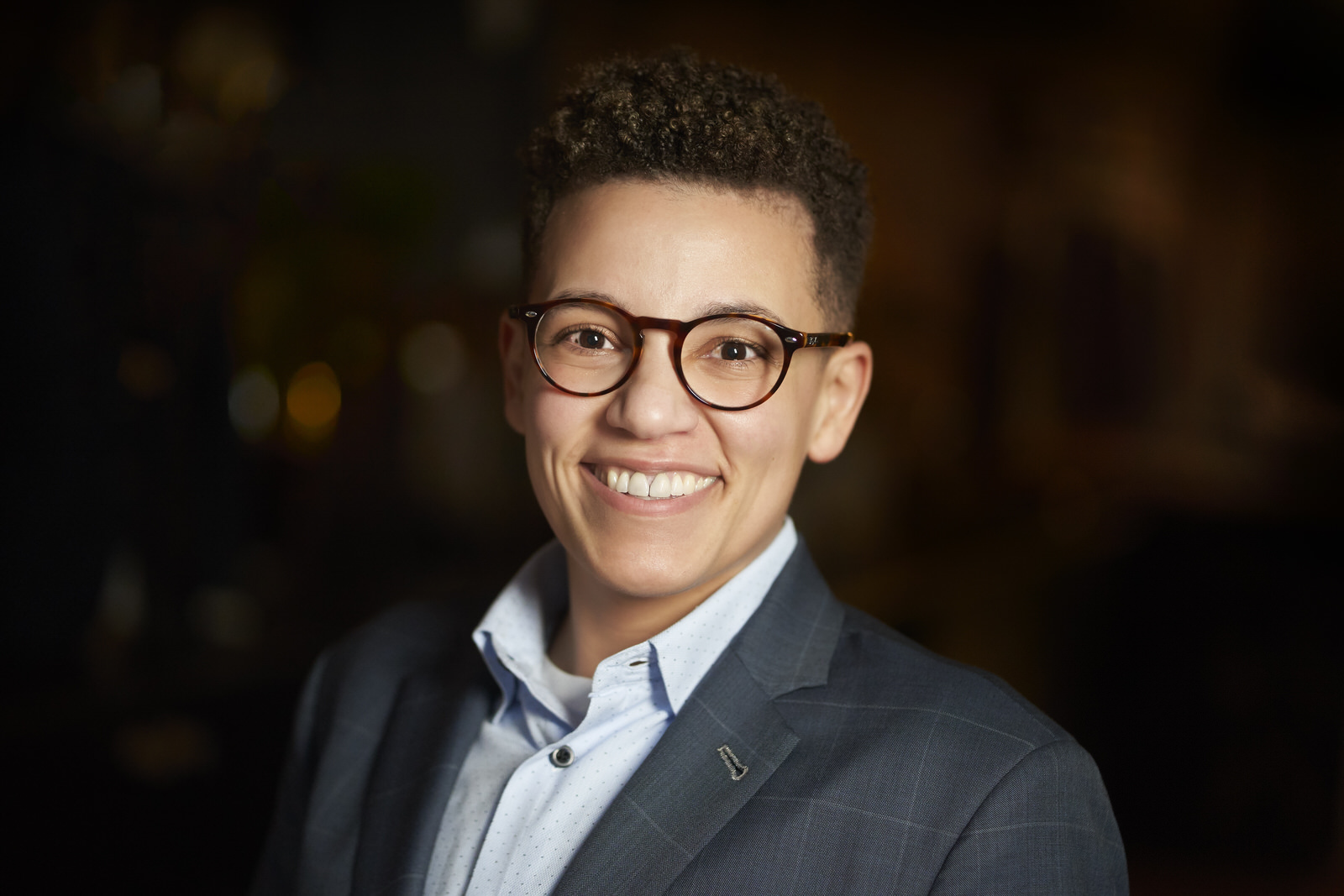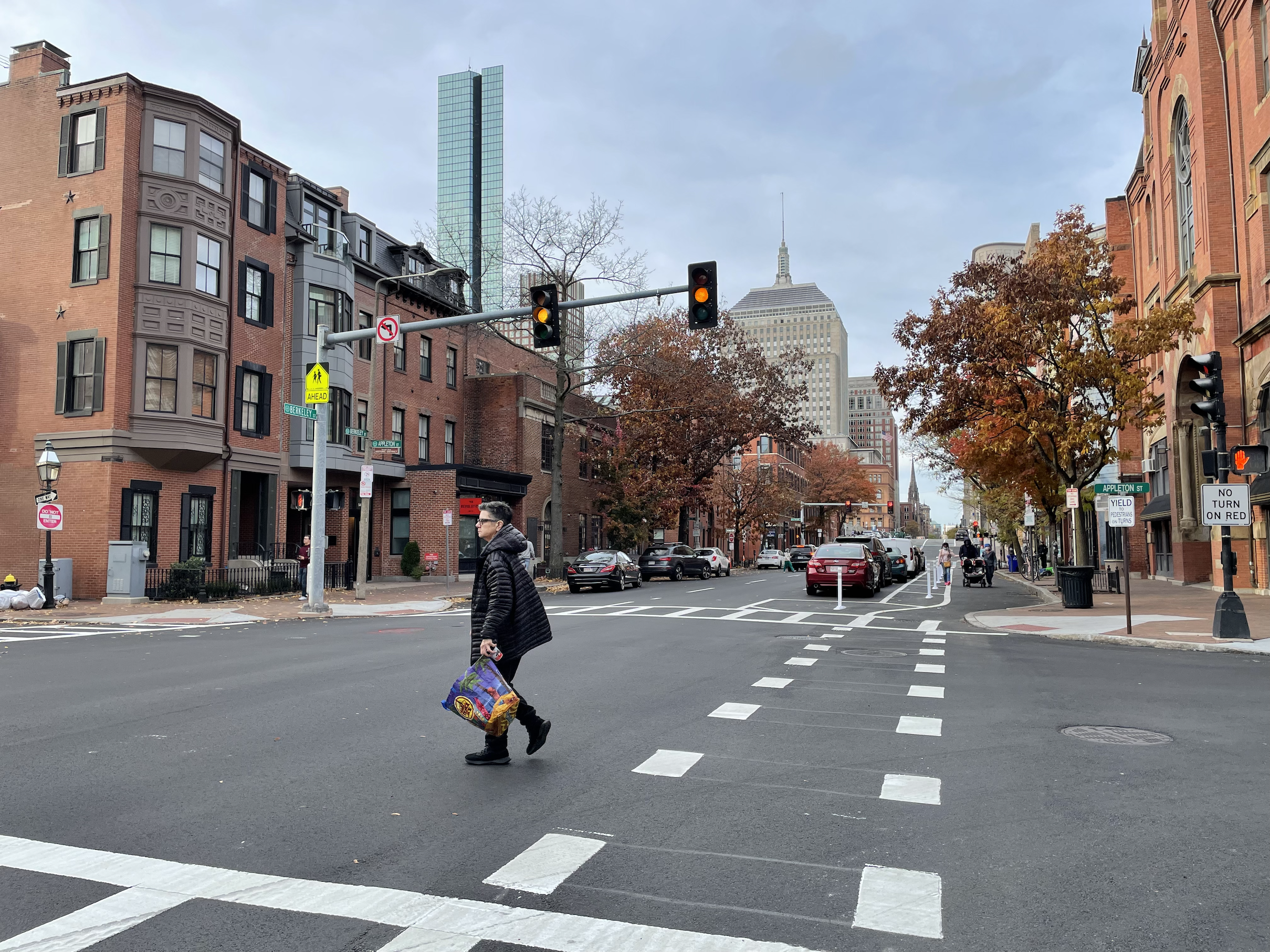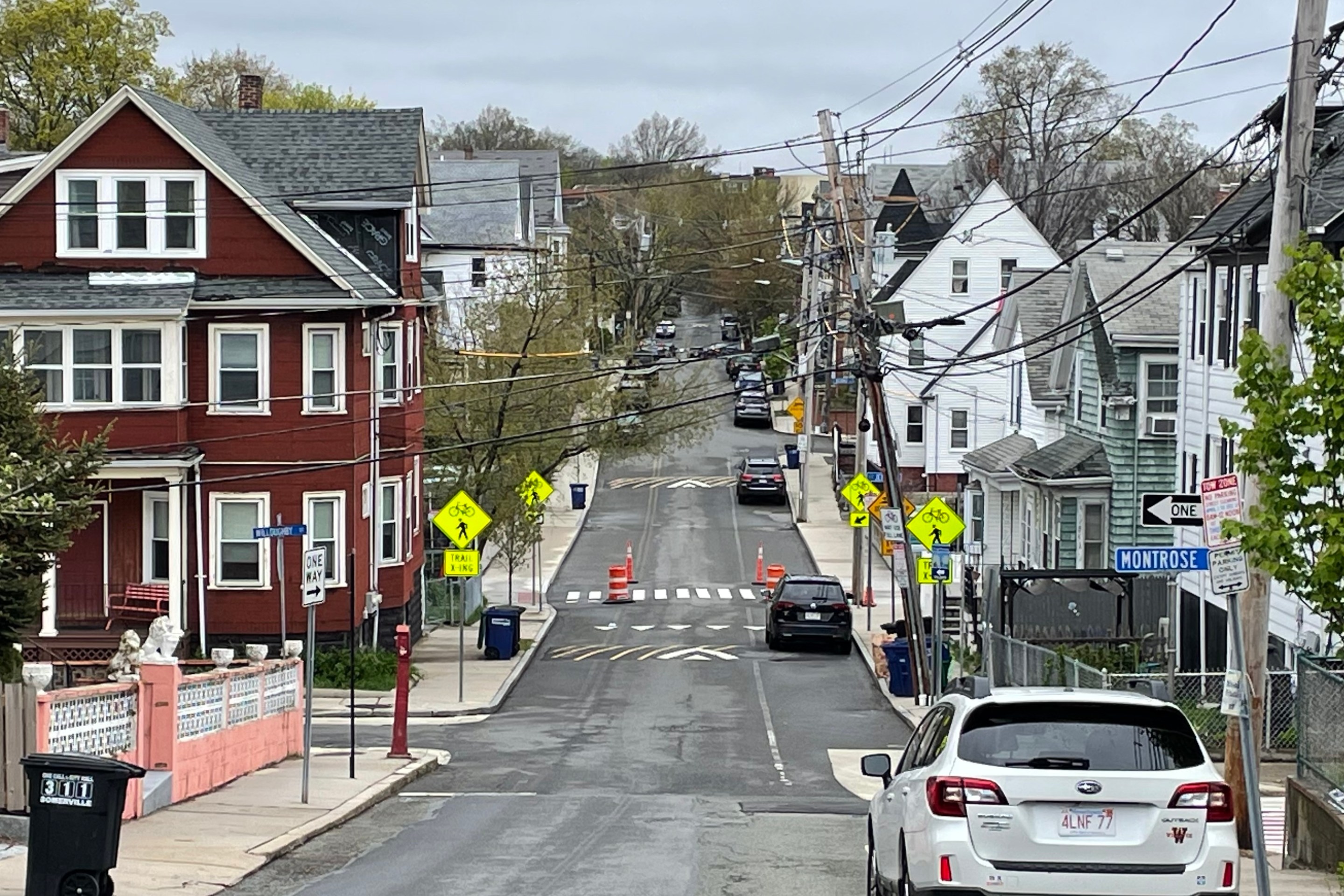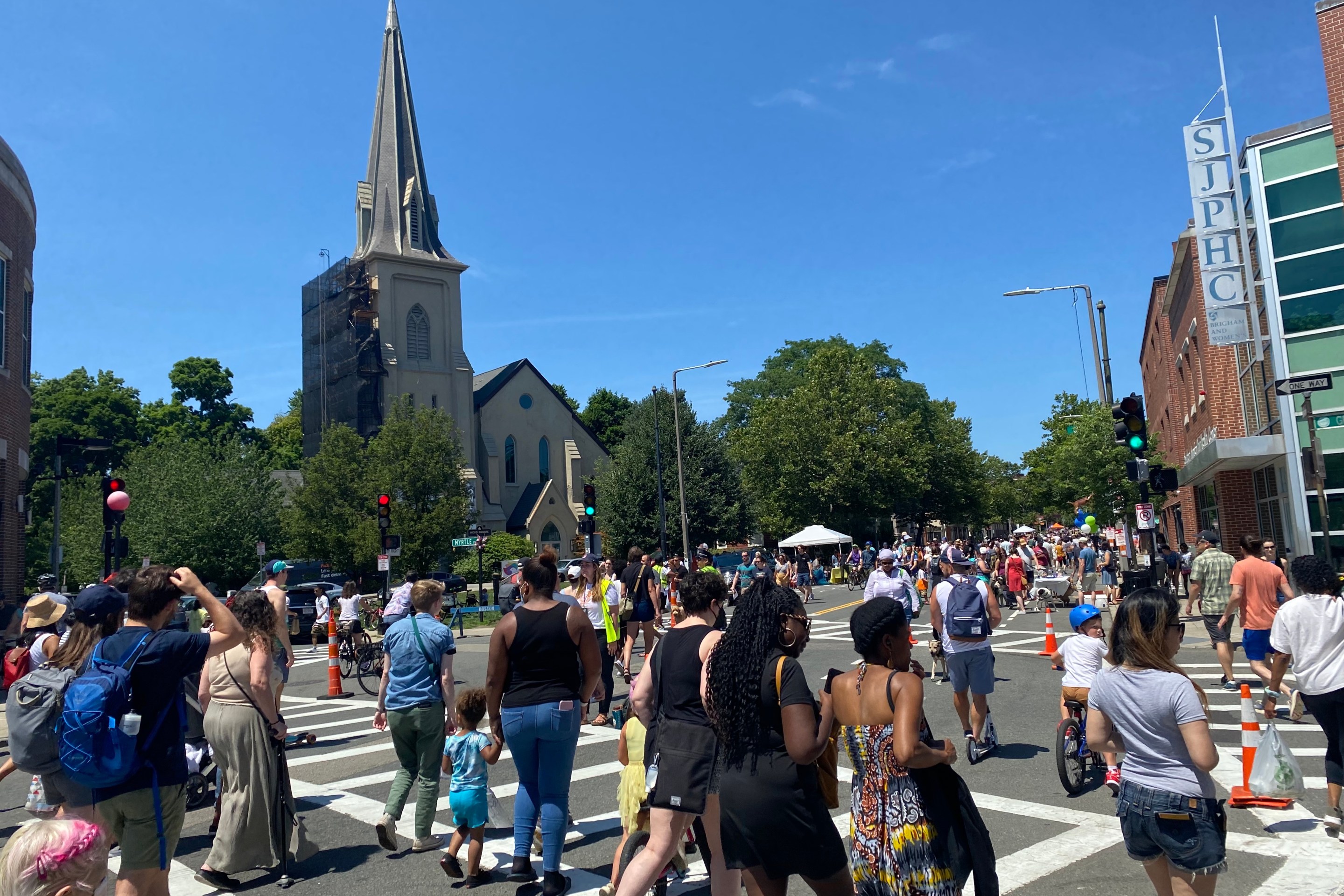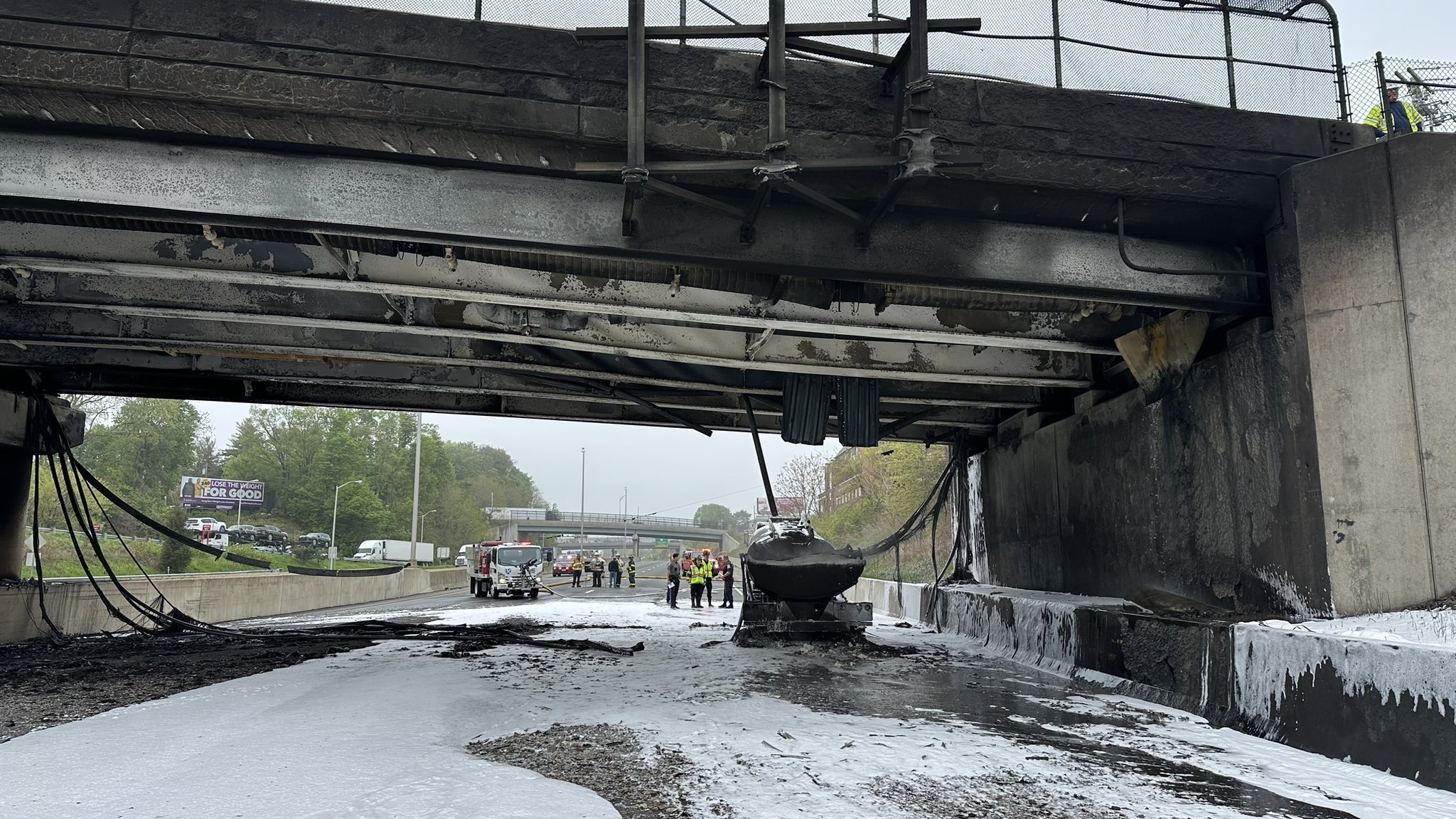Monica Tibbits-Nutt, the Executive Director of the 128 Business Council, recently capped off six years of service on the governing boards of the MBTA and MassDOT.
Tibbits-Nutt was the Vice Chair of the T’s Fiscal and Management Control Board (FMCB), and was one of only two board members (along with Chairperson Joseph Aiello) who served on the board for all six years of its existence.
The FMCB, which was formed in response to widespread service interruptions during the brutal winter of 2015, oversaw a dramatic increase in the T’s spending on maintenance and modernization projects.
During her 6 years of service, Tibbits-Nutt was a steady advocate for riders, and particularly for bus riders. We spoke with her by video conference at the end of October. The following transcript has been edited for length and clarity.
What are your proudest accomplishments from the time you served on the FMCB?
The first one that comes to mind is focusing on the customer experience, and creating the customer technology department. That was near and dear to my heart because it gave me the opportunity to work with a lot of talented people, and bring talented people into the agency.
I think that pointing that lens on our customers, both internally within the T’s employees and externally, meant a lot to me. And to amplify the voices inside the agency that were pushing for those initiatives, and to work with community groups that were advocating for more of a focus on riders.
I did not get through everything I’d hoped to achieve (on the FMCB); that list was very long. That’s going to be a lasting frustration, but I’m excited for the new board, and I’m hopeful they’ll continue some of the work we started.
What advice do you have for the T’s new board?
Two things: first, focus on the future. Focus on what the customers need, and what kind of transit system we ultimately want to have, and use that as the goal for every other project and program you’re doing. I think that the thing that’s most difficult for boards to do, is to have that endgame in mind.
The other thing is keep working with the staff, the frontline employees. They’re not only the face of that agency, they know more than anyone else about how the system works.
Betsy Taylor is an unbelievable chair, I worked with her on the board of MassDOT. They’re poised to carry out and improve a lot of the plans we put together.
In your opinion, what are the biggest risks or challenges that the MBTA faces as we emerge from the pandemic?
The past year and half has been awful. It’s hit some industries harder than others, and transportation is up there. But the revenue issue was there before the pandemic. We need to have a larger conversation, and a more consistent conversation, about dedicated, more progressive revenue streams. That’s what it’s going to take to start the recovery .
Also look at the housing shifts: a lot of people moved out of the city, out of the inner core. A lot of transit-dependent households are getting priced out of the neighborhoods that the T serves. So it’s essential for the board to work with regional plans.
People talk about the "new normal" and getting back to what it used to be like, but what it used to be like was not good either.
I hate when people say to turn the pandemic into an opportunity, but we really do need to use this as a catalyst to actually improve the regions and the commonwealth’s (transit) system as a whole, and not just particular routes, or particular communities.
You lead the 128 Business Council. How do you advocate for transit and bike and pedestrian access in the suburbs, where things tend to be more car-oriented?
Advocates need to pay attention outside the inner core, and care about people living and working outside the inner core. We (the business council) were founded by Polaroid and major developers because there's a major gap between where the rail lines are and where people are actually working. It’s been like this since the 1960s. A lot of companies are in these areas for the same reasons people move to these communities, because rent is cheaper than in Boston or Cambridge.
A lot of people talk about equity in the inner core, but what they’re not understanding is we have those issues in other parts of the Commonwealth, too. When people are being displaced, this is where they’re moving to. We’ve got to pay attention to the whole region.
On the FMCB, you earned a reputation for being the board’s biggest advocate for bus riders. What are your thoughts on the T’s “bus transformation” efforts so far?
There have been huge leaps. You have the bus network redesign, and the Better Bus Project. It crosses over both agencies, MassDOT and the T, so there is a lot of focus and a lot of resources being put into the conversation around buses.
The reason I talk about buses all the time is because buses are the most flexible, equitable transit option we have. Now that we have staff who have been given the freedom to really think about the entire network, as opposed to just line by line, that’s where you’ll see more innovative projects and more of these dedicated bus lane mileage being built.
There’s been a massive leap over the last 6 years from both agencies, so I’m incredibly optimistic that we’ll continue to see really brilliant projects coming out that will better serve riders.
What turned you into a transit advocate?
I’ve been here a little over 15 years, but I’m originally from northern Indiana. I grew up in the country, in a manufacturing community, where everyone worked in factories.
I grew up incredibly poor, relying on a lot of social services, and I grew up in a family where everyone worked in factories. As you moved outside my immediate family, a lot of people weren’t able to even get their high school diplomas because they needed to enter the workforce to support their families.
In a lot of parts of this country, if you don’t have a car you can’t actually get jobs to feed your family.
I was able to go to a very good school system, but I had to take a very long bus ride every day. So transportation was essential to my education. I was the first one in my family to go to college, the first one to go to grad school.
So for me, transportation was clearly a big issue from a very early age... As an undergrad, I majored in sociology and political science; mainly because I wanted to understand how a country allows families to live in poverty, and I wanted to understand how to help people in my community… and so after learning all of that, I wanted to change it, so that’s why I went to architecture school and became a community planner.
Transportation has been something I’ve been really focused on in the last decade-plus, but community planning is really the big focus, and it’s really about access and options.
I bring a lived experience that not a lot of people have in our industry. So, it sounds kind of cheesy, but I’m fighting for my family, and for my community, and for the people I represent. That is the entire basis of everything I do.
What kind of transit advocacy are you thinking about now that you’re not on the MBTA and MassDOT boards?
I’m able to advocate for different things than what I advocated for when I was on the board. All five of us were very vocal, and I was very vocal around issues of equity and the buses. But now it’s gone beyond making policy at the state level, and for me it’s helping to build projects that are actually serving riders at a large scale.
A lot of my focus (now) is working with the private sector and municipalities to fill in service where there are those MBTA gaps. It allows me to take the knowledge I gained on the T board to actually put together, boots-on-the-ground, tangible projects that are serving that larger goal. And continuing to work with the T to try and push them in that similar direction.
All the shuttle transportation we provide is all privately funded, but completely publicly available. The majority of that funding comes from developers...
In the 128 corridor, we work a lot with the private sector on commercial office and housing development. That’s key to addressing a lot of these issues, whether you’re talking about bike/ped infrastructure, or dedicated bus lanes, or more accessible spaces; all of that can be handled much quicker if you come from that direction.
I think a conversation that’s not being had is who owns the infrastructure of these systems. Bus stops and things like that - most of them are privately owned, yet there’s not really a lot of engagement with the private sector. Even large developers, like Boston Properties, who are our clients, ask us “Can you please talk with the T? Can we get the T to sit down with us?”
So having real discussions about public-private partnerships, and what investment that the private sector is actually putting into towards improving these systems: there’s a lot of money being left on the table with the private sector. The T, and a lot of public agencies, are so overwhelmed just keeping the lights on, that it’s just impossible for them to innovate or think long-term…
Through the business council, quite honestly, a lot of our work is trying to better connect to the T, but we’re also continuing our work (to improve) even faster than the T is doing.
We’re a transportation news outlet, but housing is always at the periphery of the stories we cover, because it’s so critical to transportation - whether people have access to the things they need, and whether people can afford to live near transit. Is the 128 Business Council also thinking about housing issues and affordability in that region?
Transportation and housing are intrinsically linked. At the Business Council, especially in the last 10 or so years, it’s been a huge focus. I think about housing in every single project we do.
When we’re working with developers for new developments, a lot of the time we partner with them, we’ll do the transportation demand management work and plan systems to connect them with the T, but the big thing is the full spectrum of housing.
The developers we work with want to build more affordable housing than they can get approved through the special permit process. So that is something where we spend a lot of time arguing with the municipalities. If we want to get cars off the road, we need better transit options. But if you’re only building million-dollar residences near those transit stations, it is actually not addressing the issue at all.
So yeah, I spend a shocking amount of time thinking about housing.
Building housing is obviously contentious everywhere, but it does seem more contentious in some of those outer suburbs where you work.
Oh yeah.
There’s been talk about trying to tackle these issues on the state level. I’m curious if you have thoughts about that.
It’s tough, any time you use a stick on a municipality, especially here in Massachusetts, it tends to not go very well.
I think instead of holding their feet more to the fire I think what we need to talk about is statewide zoning, and talking about regional zoning.
The special permit process is awful. It continues to serve very inequitable projects in the interest of protecting what certain municipalities like to call the “character” of their communities. That is a problem. Especially for such a segregated region, that’s a giant problem.
But for a lot of (towns), they’re dealing with zoning from the 1800s. And unless you actually advise and mandate more regional zoning you won’t be able to fix those problems. The communities are never going to have the incentive to do it, and if the state forces them, it’s still not going to work and they’re just going to fight.
It really is the state taking leadership and working in partnership with the municipalities, but making it very clear that the days of these special permits by neighborhood have to come to an end.
The ramifications they often don’t think about is yeah, maybe you’ve maintained your “community character,” but you’ve also taken businesses and developers and driven them, not just outside the region, but even into other states at this point, because of the decisions being made around land use.
Are there any suburbs that you think are doing this well, and could give us some optimism?
I think about cities like Worcester, and Lowell... when all that industry left, the same as in the Midwest with the car industry, it just destroyed their communities. The way they’ve approached taking those factory buildings and redeveloping their downtowns, I think they’re doing really interesting stuff, and unfortunately, since they’re not in the inner core, they do not get the credit or the spotlight they deserve.
As these projects get built, people can see that it’s improving their community, but it’s also improving their lives, it’s giving them many more options for places to go to the grocery store, take care of their health, and all of those things.
And a lot of this is taking into consideration making sure there’s a full spectrum of housing so that you’re not displacing people as you're making these improvements. With transit-oriented development, that has been the biggest issue I’ve had, is that it gentrifies neighborhoods immediately.
So unless it’s in combination with an overall housing plan, and also conversations around anti-displacement, it’s going to be impossible for a lot of communities to make better choices.
Stay in touch
Sign up for our free newsletter
